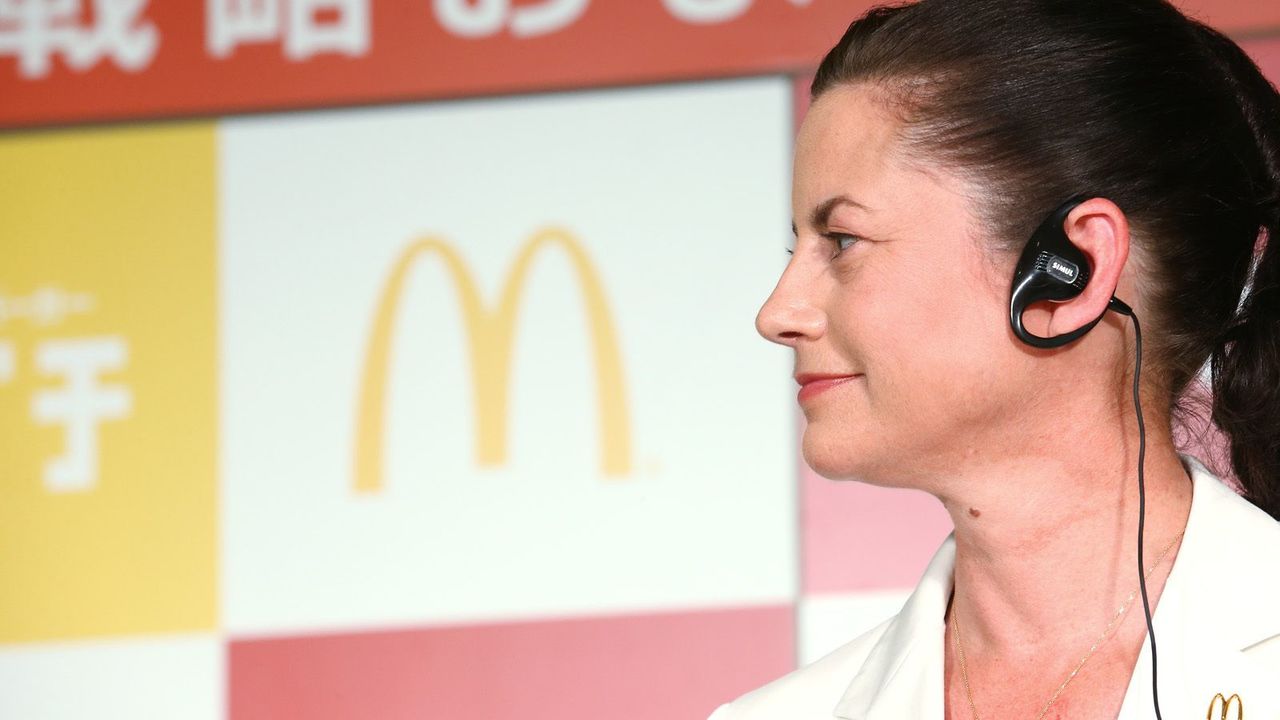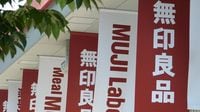
McDonald’s Holdings Japan, the Tokyo-based franchise of the world’s largest chain of fast food restaurants, is showing positive signs of business recovery.
The company reported that its latest quarter (January to March 2016) turned out to be profitable for the first time in seven quarters. This was driven primarily by a number of new launches that have been generating unexpectedly large popularity.
In early April, the company released the new Grand Big Mac, priced 520 yen ($4.70), as a limited-time offer. This enlarged version of the veteran seller, the Big Mac, became an instant hit when it came out, and some stores had to stop taking its orders because they ran out of key ingredients.
It was the first time since McDonald’s Japan Texas Burger became a smash hit in 2010 that the company was forced to restrict the sales of its products until the company was able to replenish the necessary supplies and resolve the inventory shortage through emergency procurement measures.
Another buzz was created in early February, when the company released a new burger and asked customers to name it. The tentative name of the burger was “juicy beef burger with hot potatoes grown in Hokkaido, cheddar cheese, and specially made onion sauce flavored with burnt soy sauce.” The company said that the winner will receive free hamburgers for a year as the grand prize, worth approximately 1.42 million yen ($12,900). Over 5 million name suggestions were sent to the Tokyo headquarters for screening.
The company’s President and CEO, Sarah Casanova, claims that one of the chain’s important objectives in business development right now is to introduce new products that really taste good. The “Name the Burger” campaign was just a result of those efforts, she says.
“The latest figures show that [McDonald’s Japan] stores are recapturing about half of the customers they lost two years ago,” says Seiichiro Samejima, the chief analyst at Ichiyoshi Research Institute. “More importantly, many of the customers are returning with their families.”
In the fiscal year ending December 2015, McDonald’s Japan posted the worst record ever since becoming a listed company: 34.7 billion yen ($315 million) in the red.
This blunder owed largely to the customer churn caused by repeated food safety and quality issues, including the detection of foreign substances contained in specific products. In addition, some analysts viewed that the company was meandering in the preceding fiscal year (2014) with incoherent sales initiatives.
The recent success in new product developments suggests that the management has set out more cohesive marketing strategies this year by taking these bitter lessons and observations into account.
Reintroduction of the regional headquarters
The new business recovery plan announced last April is apparently also beginning to take effect. One of the major policy changes included in this plan is the reintroduction of the regional headquarters that the company abolished in 2004.
The company reorganized its nationwide business structure by dividing it into three regional headquarters, giving each the authority to govern personnel and financial matters independently and execute its own marketing activities to respond more adaptively to local demand.
Through this large-scale organizational reform, the company aims at closing the distance between the headquarters and the field operations and transforming its restaurants into more community-oriented stores.
As the three headquarters began to scrutinize the business conditions of their regions in detail, they have gotten stricter in their decisions to erase unprofitable stores from their respective territorial maps.
While the company has shut down unprofitable restaurants in the past, the management seemed to be relatively lenient toward underperforming flagship stores located in urban centers. However, under the ongoing drastic reform plan, some of these key stores are now also listed as potential candidates of rationalization.
Regarding the remaining stores that are reaping profits, this year the company is planning to allocate the largest budget ever to refurbishing 500 to 600 of them so that they can further improve their profitability.
McDonald’s Japan’s aggressive investment to upgrade such a vast number of existing stores in a considerably short span is a reflection of the top management’s firm determination to accelerate its pace of recovery while the favorable tailwind is blowing.
However, it may be too early to ascertain that the company’s reform initiatives are fully fledged. The top management still needs to find viable solutions for the organization’s chronic structural issues, the foremost concern being the understaffing problem.
Every year around March, the company gets busy with launching a campaign to recruit part-timers to replace young part-timers who graduated from college and left the company to seek permanent positions elsewhere.
This year, the recruitment team gained full endorsement from the top management to step up this campaign. The team commissioned a top-notch video production studio to create an animated advertising film for the campaign, featuring select members of the popular Japanese idol group AKB48 as voice-over actresses.
The campaign worked effectively, pushing up the employment rate of new part-timers by 48% compared to the same period a year ago.
Nonetheless, many field leaders are reporting that they are still short-handed. “When many customers fled in 2014 and 2015, a good number of mid-level employees also left the company because they couldn’t get paid as much as they used to,” reveals a store manager who talked under the condition of anonymity. “So even if the company sends us all these new recruits, we no longer have enough experienced employees who can train them into work-ready members of our team right away.”
McDonald’s Japan generally looks at each store’s profitability, so, if a store wants to make a targeted profit even if there’s no sales growth, it has to cut personnel expenses since there’s almost no room to trim the store’s outlay on ingredients, rent, and utilities.
"This sort of extreme ends-justifies-the-means mindset led to the crew errors that created the 2015 food adulteration scandals," says one employee who asked not to be identified. “If the top management hasn't already learned the hard way, another incident could occur."
The unforeseeable future
Meanwhile, the company is faced with a thorny issue evoked by its most important stakeholder.
In January, McDonald’s Corporation, the franchiser headquartered in the U.S., announced its intention of selling a part of the 49% stake it holds in its Japanese arm to a strategic investor, following its decision last year to lower the strategic priority of Japan by reclassifying the country as one of many “fundamental markets.”
Although nearly half a year has passed since this announcement, due to two bottlenecks, McDonald’s has not yet been able to find such strategic investor.
One bottleneck is the current stock market trend. McDonald’s Japan’s stock value began rising steadily as its business showed signs of recovery, making the stake ironically more valuable to existing stockholders and less attractive to traders searching for low-risk, high-return investment deals.
The second is the limited proportion of stake that McDonald’s is willing to release. It is not appealing to investors who generally prefer to be in control of the selling company by acquiring the majority of shares.
Under such uncertainties prevailing both internally and externally, McDonald’s Japan has to continue paving its way forward. With less support and more destabilizing pressure from its global franchiser, the path ahead still looks quite rough and winding for the company to confidently declare that its worst is over.



